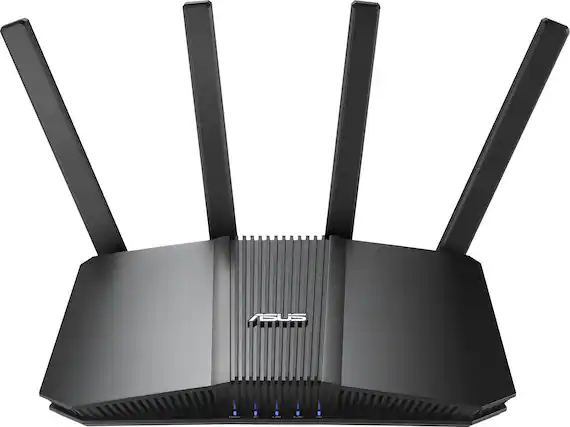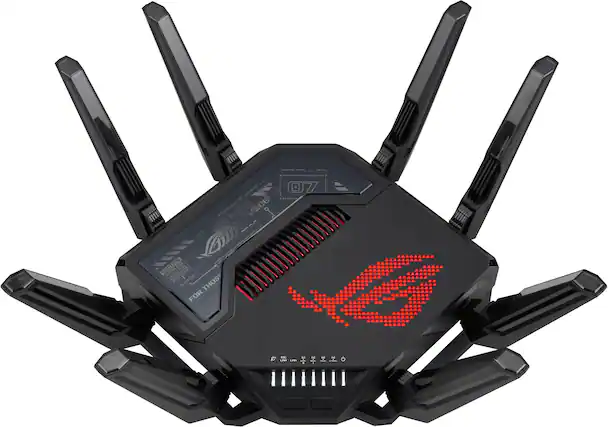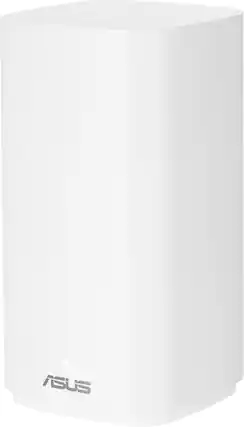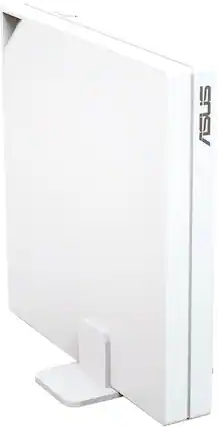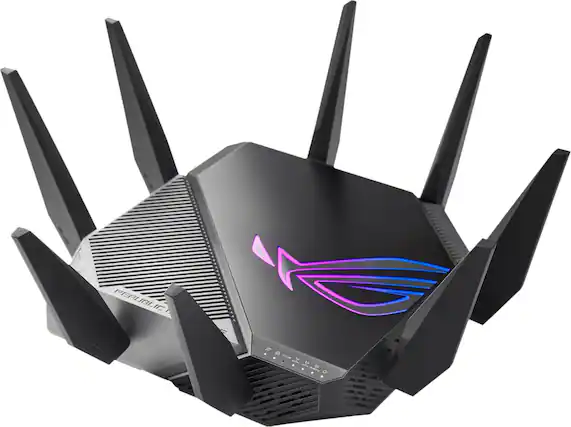Wi-Fi Routers
(44)- $129.99Save $20Comp. Value: $149.99+ 1 offer for you
Pick up Thu, Feb 26
Get it tomorrow • FREE
Installation as soon as Tue, Feb 24
- $169.99Save $30Comp. Value: $199.99+ 1 offer for you
Pick up today
Get it tomorrow • FREE
Installation as soon as Tue, Feb 24
- $629.99Save $70Comp. Value: $699.99suggested payments with 12‑Month Financing$52.50/mo.+ 1 offer for you
Pick up today
Get it tomorrow • FREE
Installation as soon as Tue, Feb 24
- $349.99Save $100Comp. Value: $449.99suggested payments with 12‑Month Financing$29.17/mo.+ 1 offer for you
Pick up today
Get it tomorrow • FREE
Installation as soon as Tue, Feb 24
- $219.99Save $30Comp. Value: $249.99+ 1 offer for you
Pick up today
Get it tomorrow • FREE
Installation as soon as Tue, Feb 24
- $129.99+ 1 offer for you
Pick up today
Get it tomorrow • FREE
Installation as soon as Tue, Feb 24
- $219.99Save $30Comp. Value: $249.99
Pick up Thu, Feb 26
Get it by Wed, Feb 25 • FREE
Installation as soon as Sat, Feb 28
- $349.99suggested payments with 12‑Month Financing$29.17/mo.+ 1 offer for you
Pick up today
Get it tomorrow • FREE
Installation as soon as Tue, Feb 24
- $229.99Save $120Comp. Value: $349.99+ 1 offer for you
Pick up today
Get it tomorrow • FREE
Installation as soon as Tue, Feb 24
- $69.99Save $20Comp. Value: $89.99
Pick up Fri, Feb 27
Get it by Thu, Feb 26 • FREE
- $549.99Save $250Comp. Value: $799.99suggested payments with 12‑Month Financing$45.84/mo.+ 1 offer for you
Pick up Thu, Feb 26
Get it tomorrow • FREE
Installation as soon as Tue, Feb 24
- $179.99+ 1 offer for you
Pick up Thu, Feb 26
Get it by Wed, Feb 25 • FREE
Installation as soon as Sat, Feb 28
- $899.99suggested payments with 12‑Month Financing$75.00/mo.+ 1 offer for you
Pick up today
Get it tomorrow • FREE
Installation as soon as Tue, Feb 24
- $549.99suggested payments with 12‑Month Financing$45.84/mo.
Pick up today
Get it tomorrow • FREE
Installation as soon as Tue, Feb 24
- $79.99Save $20Comp. Value: $99.99
Pick up Thu, Feb 26
Get it by Wed, Feb 25 • FREE
Installation as soon as Sat, Feb 28
- $323.99Save $156.50Comp. Value: $480.49suggested payments with 12‑Month Financing$27.00/mo.
Get it by Fri, Feb 27 • FREE
- $215.99
Get it by Fri, Feb 27 • FREE
- $389.99suggested payments with 12‑Month Financing$32.50/mo.
Get it by Fri, Feb 27 • FREE

